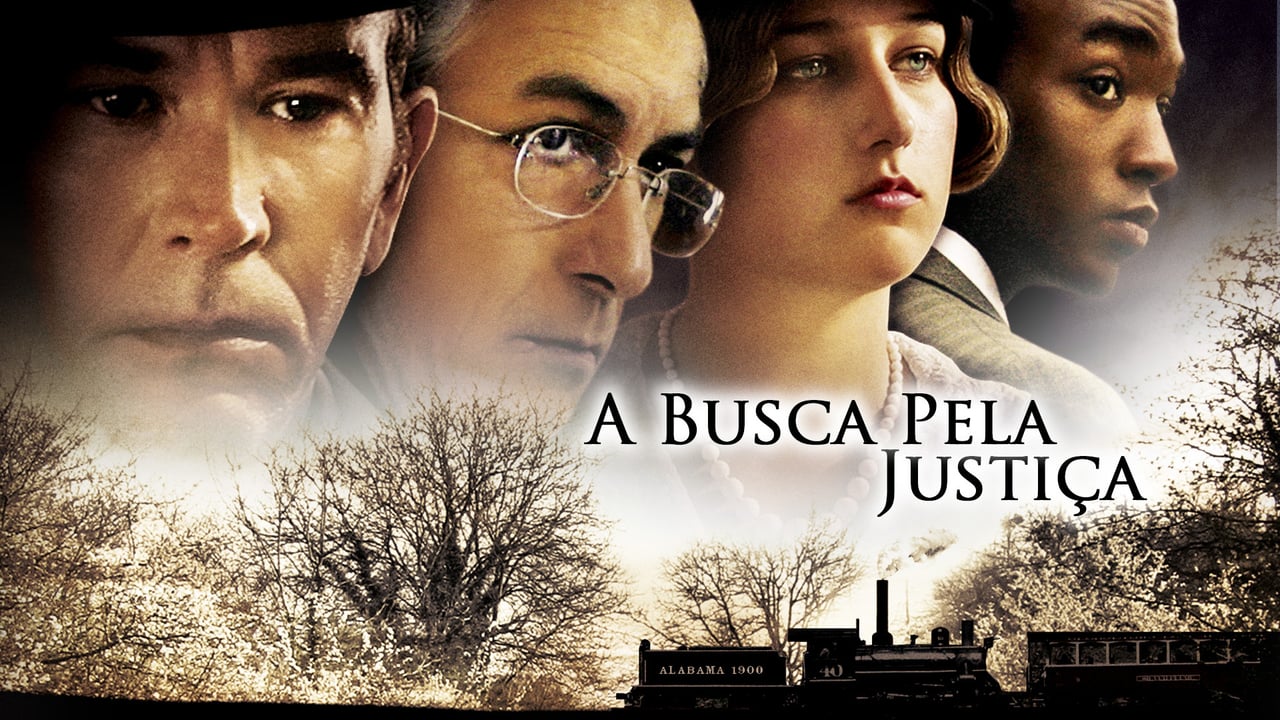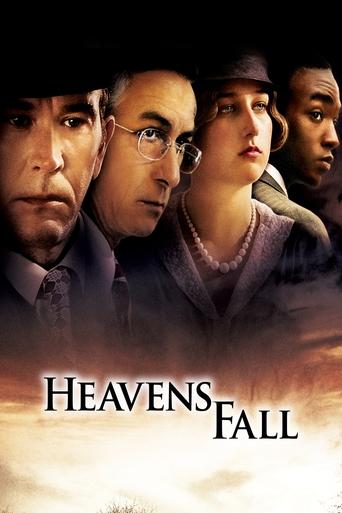

It's about time Hollywood was able to treat the South as more than a mephitic swamp of ignorant, sneering racists at the bottom and incestuous, decadent, supercilious Gothics at the top. The traditional problems may still exist here and there but the South is no longer a separate country as it was in the early 1930s, when two impoverished, young white women accused a handful of African-American men of rape, in order to avoid doing jail time themselves for vagrancy. Blaming black men for your own crimes is still common enough. It happens in places like Revere, Massachusetts, and Union, South Carolina. Blaming the socially devalued goes beyond the circumstances of 1930s Alabama. Nazi Germany made a national policy out of it, and prim Salem, Massachusetts, had a go at it in 1693.Okay, okay. I'm getting down off the sociological soapbox. Will someone give me a hand? (That game right knee again.) This is a pretty good historical movie. First of all, it's finely acted. Timothy Hutton is Sam Liebowitz, an idealistic New York lawyer, who challenges the jury system and defends one of the boys -- and loses, as usual. But the judge in the case, David Strathairn, plays it fair. That's why he's not reelected and retires to his farm after the trial. And the local DA, Bill Sage, is a genuinely nice guy who happens to believe in his own cause. Liebowitz's opponents are either polite (chuckling over Liebowitz's naiveté) or faceless white jury members who will simply not sully a white woman's reputation and dismiss her allegations against poor black folk. They're guilty almost by definition. If not, why are they in court? And anyway, if they didn't rape the two girls, they probably did something else worth being executed for. In the end, nobody gets the chair, but the young men languish in jail for years after being found guilty.Liebowitz, without his knowing, may have helped lose the case himself. In a café, seeing a black girl waiting for a lunch to be handed to her to take out because she's not admitted into the café. Liebowitz strides over to her, hands her the paper bag, slams down the payment on the counter, and shouts, "What kind of people ARE you?" That's no way to endear yourself to the community from which the jurors are drawn.Liebowitz needed to act more like a cultural anthropologist or a blackmailer, insinuating himself into the town, getting to know the host in a non-threatening, non-demanding way, along the lines of Gene Hackman's character in "Mississippi Burning." If you strike people, they have a tendency to strike back.Of course, it if hadn't been for the alien defense of Liebowitz and the lawyers from the International Labor Board (who bring Liebowitz up short when he gets too self-righteous), who knows what would have happened to the Scottsboro boys? Electrocution probably. Lynching possibly. The 1930s were a tough time for everyone economically, and an early study showed that lynchings in the South varied inversely with the price of cotton. In other words, the price of cotton goes down, the number of lynchings go up. Hmm. Stumbled over that soapbox again.Anyway, the movie left me sad at the outcome of the trial, but overall optimistic. Yes, things were bad then. But look how good they've become since.
... View MoreNothing spectacular about this movie. The actors played their parts as though they were there just for the money. The good thing about the movie was how it portrayed the bigot and racial hatred practiced by our fine USA citizens. And, went on as though their lies were the truth and with the conviction that no one could prove their lies to be false and prejudicial. I cannot say more about this movie and I yet do not have enough information to meet the required amount of sentences for the IMDb. So the rest of my presentation will be meaningless jargon. You may stop reading at any point. Mary had a little lamb. It's fleece was white as snow.
... View MoreThe movie was very thought-provoking! I never knew African-Americans weren't allowed on jury duty during the 1930s. It truly amazes me just how stupid and ignorant the white people were back then! For these white me to convict a man of rape, recommend the electric chair as the punishment, and then exit the courtroom with smiles on their faces just angers me to no end!!! I hope God has sent these men to hell, where they belong! To whomever made this film, thank you. You've really opened my eyes to the problems this country has had with racism! (Not to say I didn't already have a good idea!) I will never share the same beliefs of my ancestors!!!!! Justice is for all, no matter what skin color they possess!
... View MoreI liked the movie a lot, and when I saw that it was inspired by a true story, well that got me thinking: 1 Is that possible that someone even one person could do such a thing without any remorse's? 2 If it's possible than can't we really do anything to stop and prevent such an awful act from happening? 3 And last but not least, are there still places not only in U.S. but on earth were such a thing is still possible? I understand that it's in their culture to HATE the black community, it's their educations foul, from father to son and so on and so fourth,but really,come on wake up... This of course applies to the past but I'm afraid that it's appliable in our present to.
... View More